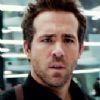NANDINI RECALLS BEING A HEALER IN ANCIENT EGYPT
By the time Dr. Dhawan had finished counting backward from ten to one, Nandini was already in a deep hypnotic trance. Her eyes were fluttering under their lids. Her body was limp, and her breathing had slowed into a very relaxed rhythm. Her mind was now ready for time travel.
Dr. Dhawan took her back slowly, this time using a peaceful mountain stream as a gateway to the distant past. She walked across the stream into a beautiful light. Walking through the light, she emerged in another time and another place, in an ancient lifetime.
"I'm wearing thin sandals," she observed, after Dr. Dhawan had instructed her to look at her feet. "There's a binding just above the ankles. I have a long white dress of different lengths. Over it is a veil-like covering down to my ankles. The sleeves are very wide and end at my elbows. I'm wearing golden bracelets at three different levels of my arms." She was observing herself vividly and with great detail.
"My hair is dark brown and long, below my shoulders. . . . My eyes are brown, too. . . . My skin is light brown."
"You are a girl," assumed Dr. Dhawan.
"Yes," she patiently answered.
"About how old are you?"
"About fourteen."
"What do you do? Where do you live?" He fired at her, asking two questions before she had a chance to answer.
"On the temple grounds," she responded. "I'm training to be a healer and to help the priests."
"Do you know the name of this land?" he asked.
"It is Egypt ... a long time ago."
"Do you know the year?"
"No," she replied. "I don't see that . . . but it is very long ago . . . very old."
Dr. Dhawan returned to her memories and experiences of that ancient time.
"How did you happen to receive this training, to be a healer and to work with the priests?"
"I was selected by the priests, just as the others were. We are all chosen, according to our talents and abilities. . . . The priests know this from the time we are very young."
He wanted to know more about this selection process.
"How do the priests know about your talents? Do they observe you in school or with your parents?"
"Oh, no," she corrected him. "They know intuitively. They are very wise. They know who has the ability in numbers and should be an engineer or a counter or a treasurer. They know who can write and scribe. They know who has military potential and should be trained to lead armies. They know who will make the best administrators. These will be trained to be governors and officials. They know those who possess healing and intuitive abilities, and these are trained to be healers and advisers and even to be priests."
"So the priests decide what occupations people train for," he summarized.
"Yes," she concurred. "Talents and potentials are divined by the priests when the child is very young. His training is then set. . . . He has no choice."
"Is this training open to everyone?"
"Oh, no," she objected. "Only to those of the nobility, to those related to the pharaoh."
"You must be related to the pharaoh?"
"Yes, but his family is very large. Even distant cousins are considered part of the family."
"But what of very talented people who are not related?" asked Dr. Dhawan, his curiosity causing him to linger at this family selection system.
"They can get some training," she again patiently explained. "But they can only progress so far . . . to be assistants to the leaders, who are relatives of the royal family."
"Are you a relative of the pharaoh?" he asked.
"A cousin . . . not too close."
"Close enough," he uttered.
"Yes," she answered.
Dr. Dhawan decided to move on, even though he already knew that the patient after Nandini had cancelled her appointment that day, so time was not hurrying him along as much as usual.
"Do you have any family with you?"
"Yes, my brother. We are very close. He is two years older. He has also been chosen to train as a healer and priest and we are together here. Our parents live some distance away, so it is very good to have my brother with me. ... I can see him now."
Dr. Dhawan risked another distraction, looking for clues to understanding Nandini's relationships. "Look closely at his face. Look into his eyes. Do you recognize him as anybody in your current life?"
She seemed to be peering into his face. "No," she said sadly. "I don't recognize him."
Dr. Dhawan had somewhat expected her to recognize her beloved mother, or perhaps her brother or father. But there was no identification.
"Go ahead in time now to the next important event in that Egyptian girl's life. You can remember everything."
She went forward in time.
"I am eighteen now. My brother and I are much more advanced now. He is wearing a white and gold skirt that is short. It ends just above his knees. . . . He is very handsome," she noted.
"How are you more advanced?" he inquired, bringing her focus back to the training.
"We have many more skills. We are working with special healing rods that, when mastered, greatly speed up the regeneration of tissues and limbs." She paused for a few moments, studying these rods.
"They contain a liquid energy that flows through the rods. . . . The energy is concentrated at the point of regeneration. . . . You can use this to grow limbs and heal tissue, even dying or dead tissue."
Dr. Dhawan was surprised. Even modern medicine cannot accomplish these feats, although nature can, as with salamanders and other lizards, which can regrow detached limbs or tails. The latest research in traumatic spinal cord injuries is just now leading to the beginning of controlled nerve regeneration, about four to five thousand years after Nandini's work with healing rods that could induce limb and tissue regeneration.
She could not articulate how the rods worked, other than with energy. Nandini did not have the vocabulary or mental concepts to understand and explain.
She began to speak again, and the reasons for her lack of understanding became clear.
"At least that's what they tell me. I am young and a girl. I have held the rods, but I have never seen them work. I have not yet seen the regeneration. . . . My brother has seen this. He is allowed, and when he is older he will be allowed this knowledge of regeneration. My training will be ended before that level. I cannot progress to that level, for I am a female," she explained.
"He will be allowed the knowledge of regeneration, and you will not?" Dr. Dhawan questioned.
"That is true," she commented. "He will be allowed to know higher secrets, but I will not."
She paused, then added, "I am not jealous of him. It is the custom ... a foolish custom, because I have more ability to heal than many men."
Her voice dropped to a whisper. "He will tell me the secrets anyway. . . . He has promised me. He will teach me how the rods work, too. He has already explained many things to me. . . . He has told me they are trying to revive people who have recently died!"
"Who have died?" echoed Dr. Dhawan.
"Yes, but this must be done very quickly," she added.
"How do they do this?"
"I don't know. . . . They use several of the rods. There are special chants. The body must be positioned in a certain way. There is more, but I do not know. . . . When my brother learns, he will tell me." She ended her explanation.
Dr. Dhawan's logical mind arrived at the assumption that the people allegedly being revived were not really dead yet but probably near death, like patients recovering from near-death experiences. After all, they did not have equipment to monitor brainwave function in those days. They could not pinpoint the absence of brain activity, which is the modern definition of death.
His intuitive sense told him to keep an open mind. Other explanations could exist, explanations beyond his current comprehension.
Nandini was still silent, so he resumed the questioning.
"Are there other forms of healing that you do?" he asked her.
"There are many," she responded. "One is with our hands. We touch the area of the body that needs the healing and send energy directly there . . . through our hands. Some don't even need to touch the body. We feel above the person's body the areas of heat. We disperse the heat and smooth the energy. The heat must be dispersed at several levels above the body, not just the closest," she explained. She was speaking rapidly now, describing ancient variations of healing techniques.
"Others can heal mentally. They can see the problem areas in their minds, and they mentally send energy to those spots. I can't do this yet," she added, "but I will learn eventually.
"Some touch the person's pulse with their second and third fingers held together and send energy directly into the flow of blood. You can reach the internal organs this way, and you can see the cleansing energy leaving through the person's toes." Nandini continued her rapid and increasingly technical explanation.
"I am working now with putting people into very deep levels of trance and having them also see the healing as it occurs, so that they complete the healing transformation on the mental level. We give them potions to help them go very deep." She paused for a moment.
Except for the potions, this last technique very much resembles the hypnotic visualizations that Dr. Dhawan and others were using in the late twentieth century to stimulate the healing process.
"Are there more methods?" he inquired.
"The ones that evoke the gods are reserved for the priests," she answered. "These are forbidden to me."
"Forbidden?"
"Yes, because women cannot become priests. We can become healers, and we assist the priests, but we cannot do their functions. . . . Oh, some women call themselves priestesses and play musical instruments in the ceremonies, but they have no power." With some sarcasm in her voice, she added, "They are musicians like I am a healer; they are hardly priests. Even Hathor mocks them."
Hathor was the Egyptian goddess of love, mirth, and joy. She was also the goddess of festivity and dance. Nandini was probably remembering one of Hathor's more esoteric functions, that of defender and protectress of women. Hathor's mockery of these priestesses underlined the empty grandiosity of their titles.
Nandini grew silent again, and as she did, Dr. Dhawan's mind drew parallels to the current time. Glass ceilings seem to be as old as time itself.
The road to advancement in this period of primitive Egypt seemed to be restricted to only a few. Relatives of the pharaoh, who himself was considered half divine, could advance, but female relatives would soon bump into the gender barrier. Male relatives of the pharaoh were the privileged few.
Nandini was still silent, and Dr. Dhawan urged her forward. "Go ahead in time to the next important event in that life. What do you see?"
"My brother and I are advisers now," she commented, after progressing a few more years into the future. "We stand behind the governor of this area and we advise him. He is a great administrator and a good military leader, too. But he is impulsive and needs our intuition and inner guidance. . . . We help to balance him."
"Are you happy doing this?"
"Yes, it is good to be with my brother. . . . And the governor is usually kind. He often listens to our advice. . . . We do our healing work also." She seemed contented, if not ecstatic. She had not married, so her brother was her family. Dr. Dhawan moved her ahead in time.
She was visibly upset now. She began to cry, then stopped. "I know too much for this. I must be strong. It is not that I fear exile or death. Not at all. But to leave my brother . . . that is hard!" Another tear fell.
"What happened?" asked Dr. Dhawan, somewhat startled at the sudden decline in her fortunes.
"The governor's son became severely ill. He died before anything could be done. He knows about our work with regeneration and our attempts to bring the recently dead back to life. So he demanded that I bring his son back from the dead. If I did not, I would be sent to permanent exile. I know that place. Nobody returns."
"And the son?" Dr. Dhawan asked hesitantly.
"He could not be returned. It was not allowed. So I had to be punished." She was again sad and the tears welled up once more in her eyes.
"It makes no sense," she said slowly. "I was never allowed to learn about the rods. ... I was never allowed to acquire the knowledge of regeneration and revival. My brother taught me a little, but not enough. . . . They didn't know he told me anything."
"What happened to your brother?"
"He was away, so he was spared. All the priests were away. Only I was around. . . . He returned in time to see me before the exile began. I don't fear exile or death, only leaving him. . . . There is no choice."
"How long are you in exile?" he asked.
"Not very long," she answered. "I know how to leave my body. One day I left my body and did not return. That was my death, for without the soul, the body dies." She had jumped to that point and was speaking from a higher perspective.
"As simple as that?"
"There is no pain, no interruption in awareness when such a death is chosen. That is why I did not fear death. I knew I could never see my brother again. I could not do my work on that barren island. There was no reason to stay in physical form. The gods understand."
She was silent, resting. Dr. Dhawan knew that her love for her brother would survive physical death, as would her brother's love for her. Love is eternal. Had they met again over the intervening centuries? Would they meet again in the future?
He also knew that this memory would help ease her grief. Once more she had found herself in the distant past. Her consciousness, her soul, had survived physical death and centuries of time to emerge once again, this time as Nandini. If she could survive through time, so could her mother. So could all of us. She had not found her mother in ancient Egypt, but she had found a beloved brother, a companion soul whom she could not recognize in her current life. At least not yet.
***
NEXT: A message to Dr. Dhawan, Manik and Nandini from the Master Spirit.














comment:
p_commentcount